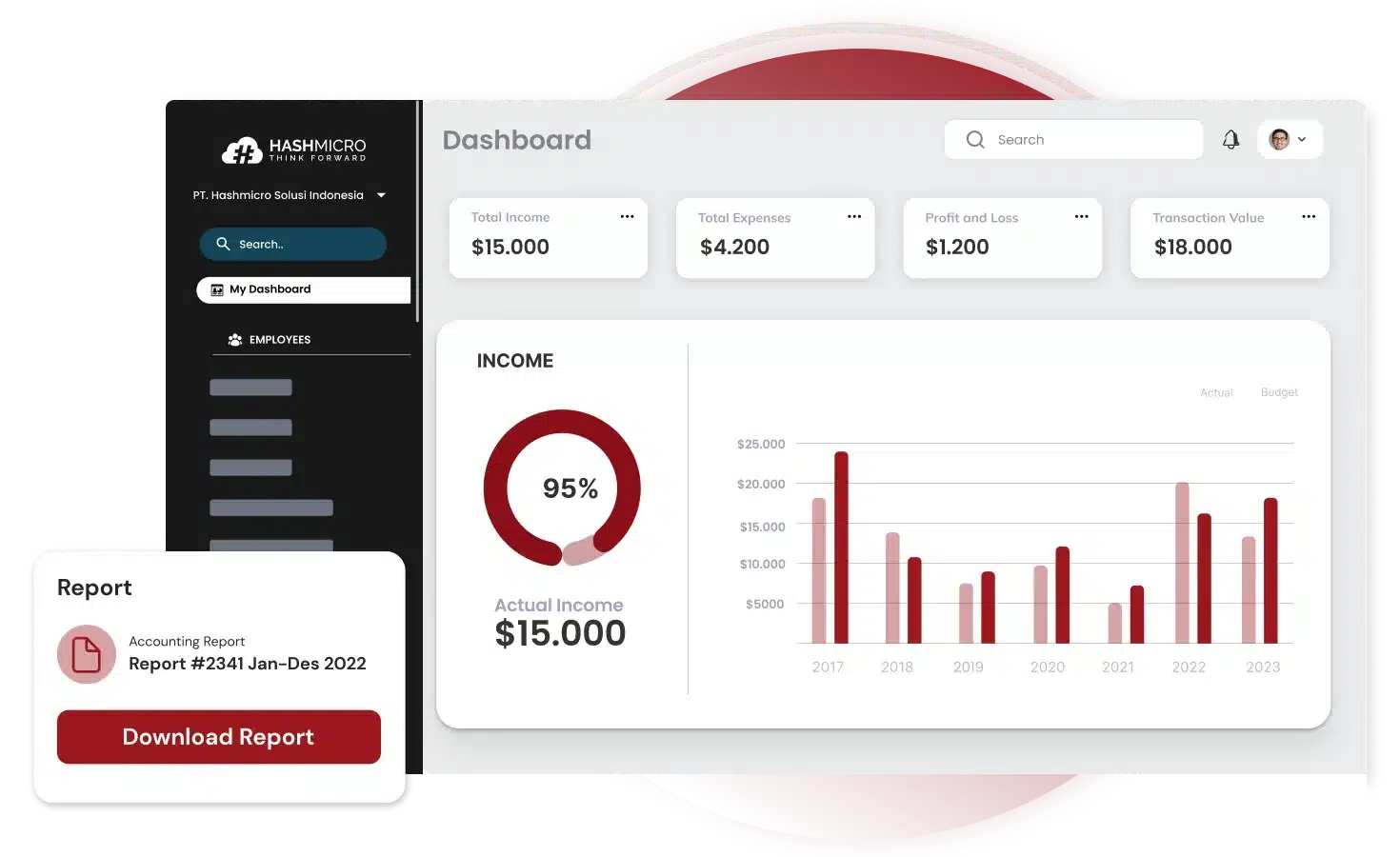As the global accounting services market is projected to reach $1.1 trillion by 2027, the demand for skilled professionals in various types of accountants is growing rapidly. This surge in the industry opens up a variety of career paths, each with its own specialized tasks and expertise. From auditing and tax accounting to financial advisory and management, the field offers countless opportunities for professionals.
In the Philippines, understanding the different types of accountants can be the key to finding a fulfilling career in finance. Whether you’re interested in becoming a Certified Public Accountant (CPA), Chartered Accountant (CA), or financial advisor, knowing the unique roles and responsibilities of each type will help you navigate the accounting industry with confidence. This guide will explore the key types of accountants and how they can contribute to your career success.
Table of Contents

Key Takeaways
|
Explore the Many Roles in Accounting
The world of accounting is much more than just crunching numbers—it’s a diverse field with various specialized roles that keep businesses, organizations, and individuals on track financially. Whether you’re interested in auditing, tax planning, or financial management, there’s a role for everyone.
Let’s dive into some key types of accountants and how they make a difference:
- Certified Public Accountant (CPA): These financial experts handle everything from audits to tax preparation and financial advice, ensuring accuracy and compliance.
- Chartered Accountant (CA): With global expertise in accounting, taxes, and finance, CAs play a vital role in international business.
- Chartered Global Management Accountant (CGMA): Specializing in strategic management accounting, they help companies make smart decisions through data analysis and planning.
- Management Accountant: Focused on internal financial reporting, they provide insights to help businesses plan and make decisions.
- Financial Accountant: They manage a company’s financial transactions and ensure everything is in line with regulations and standards.
These are just a few of the many roles in accounting. Each offers unique challenges and opportunities, making it a field full of potential for those looking to build a rewarding career. Ready to explore which path is right for you? Let’s break them down further!
1. Certified Public Accountant (CPA)
Certified Public Accountants (CPAs) are top-notch financial experts. They are licensed to do many things, like auditing, tax prep, and financial advice. To be a CPA, you need to finish a lot of school, get some work experience, and pass a tough test.
So, what do CPAs do? They are key in keeping businesses, people, and groups financially healthy and in line with the law. Their jobs include:
- Checking financial records and statements to make sure they’re right
- Helping with tax returns for people and companies
- Offering smart financial advice and consulting
- Helping with financial planning, budgeting, and forecasting
- Looking at financial data to find ways to save money or grow
- Making sure everything follows the law and accounting rules
Working with a certified public accountant means you get someone who follows strict ethics. CPAs must always act with honesty, fairness, and independence. This way, you can trust the financial info they give you.
Whether you run a small business, have a lot of money, or work for a big company, a CPA is a great partner. They help you reach your financial goals and make sure your business does well in the long run.
2. Chartered Accountant (CA)
Chartered Accountants (CAs) are top finance experts. They finish a detailed education and training. They know a lot about financial reporting, taxes, and business advice. CAs help companies deal with accounting and finance’s tough parts.
So, what do CAs do? Let’s dive in:
- Financial Reporting: CAs make and check financial statements. They make sure they show a company’s true financial state.
- Taxation: CAs know tax laws well. They help businesses and people follow tax rules and save on taxes.
- Business Advisory: CAs give advice to help companies grow and make more money.
- Auditing: CAs do audits to check if financial records are right and follow rules.
- Risk Management: CAs find and handle financial risks. They help companies avoid dangers and grab chances.
Chartered accountants also focus on special areas like forensic accounting and management consulting. Their skills and hard work make them very important to businesses and people.
In short, chartered accountants (CAs) are top finance pros. They are key in helping companies with accounting and finance. With their skills in financial reporting, taxes, and advice, CAs are very important to businesses and people.
3. Chartered Global Management Accountant (CGMA)
In the world of accounting, the Chartered Global Management Accountant (CGMA) is a standout. CGMAs are experts in strategic business management and decision-making. They use their financial knowledge to help organizations succeed.
So, what do CGMAs do? They use financial data to make informed business decisions. They work with management teams to improve performance and profits.
- CGMAs are skilled in financial planning and analysis, helping businesses forecast future trends and allocate resources effectively.
- They excel at cost management, identifying areas for efficiency improvements and cost savings.
- CGMAs are adept at risk management, providing guidance on how to navigate potential challenges and mitigate financial risks.
- Their strategic thinking and analytical abilities make them invaluable assets in driving organizational growth and innovation.
To become a Chartered Global Management Accountant, professionals must meet rigorous educational and experience requirements. The Association of International Certified Professional Accountants sets these standards. This ensures CGMAs have the skills and knowledge to excel in their roles.
The role of the Chartered Global Management Accountant is becoming more vital. These professionals are key partners for organizations. They help navigate complex financial challenges and find new success paths.
4. Management Accountant
Management accountants, also known as cost accountants, are key in a company’s financial management. They analyze financial data to help managers make smart choices. Unlike financial accountants, they focus on costs, budgets, and how well things run.
So, what do management accountants do? Let’s take a closer look:
- Cost Analysis: They track and report on a company’s costs. They find ways to cut or improve costs.
- Budgeting: They help make and manage budgets. This ensures resources are used well to meet financial goals.
- Performance Measurement: They create and watch KPIs. This helps see how well the company is doing.
- Strategic Planning: They give financial data for strategic decisions.
- Internal Reporting: They make reports for the management team. These highlight financial trends, risks, and chances.
Management accountants use their financial and cost management skills. They help companies reach their goals and stay ahead.
To be great as a management accountant, you need financial smarts, analytical skills, and business knowledge. They understand the company’s operations and link financial data to goals. This gives valuable insights for better decision-making and business success.
5. Financial Accountant
As a financial accountant, you manage a company’s financial records. You make sure they follow accounting rules and standards. Your job is to prepare and analyze financial statements. These statements show the company’s financial health.
So, what do financial accountants do? Let’s take a closer look:
- Record and classify financial transactions, ensuring accuracy and consistency in the company’s books.
- Prepare and analyze financial statements, like the balance sheet, income statement, and cash flow statement, to provide insights into the company’s financial performance.
- Monitor and report on the company’s financial position, including assets, liabilities, equity, revenues, and expenses.
- Ensure compliance with accounting standards, such as Generally Accepted Accounting Principles (GAAP) or International Financial Reporting Standards (IFRS).
- Collaborate with other departments, such as operations and management, to provide financial data and analysis to support decision-making.
- Participate in budgeting, forecasting, and financial planning processes to help the organization achieve its financial goals.
As a financial accountant, you are key to keeping a company’s financial records honest and clear. This is important for everyone who has a stake in the company. Your skills in financial reporting and analysis help the company make smart choices and deal with financial issues well.
If you love numbers and making sure financial data is right, being a financial accountant could be for you. Your skills will help the companies you work for succeed and stay strong.
6. Financial Controller
As a financial controller, you are key to a company’s financial health. You manage all financial activities, ensure reports are accurate and on time, and offer strategic advice. Your skills in financial analysis, budgeting, and risk management are vital to any business.
So, what do financial controllers do? Here are some main tasks:
- Financial Reporting and Analysis: You’ll create detailed financial statements and analyze them. This helps spot trends, risks, and opportunities, guiding the company’s decisions.
- Budgeting and Forecasting: You’ll manage the company’s budget and create financial forecasts. This planning helps the organization prepare for the future.
- Internal Controls and Compliance: You’ll make sure the company follows laws and standards. This includes setting up internal controls to prevent accounting fraud and errors.
- Risk Management: You’ll find and manage financial risks. This might involve insurance, treasury oversight, and market trend monitoring.
- Managing the Accounting Team: You’ll lead the accounting department. This includes hiring, training, and supervising staff.
The financial controller is a strategic partner to the executive team. They provide crucial financial insights and guidance, helping the company succeed.
7. Cost Accountant

As a cost accountant, you track and report on a company’s expenses. This includes materials, labor, and overhead costs. This info helps management make smart choices about pricing and budgeting.
But what do cost accountants do? Let’s explore the main parts of this key financial role:
- Cost Analysis: Cost accountants look closely at a company’s costs. They find ways to cut expenses without hurting quality or efficiency.
- Budgeting and Forecasting: By watching and predicting costs, cost accountants help make accurate budgets. This lets the business make smart decisions based on data.
- Performance Evaluation: They check how profitable and efficient different parts of the business are. This gives management the info they need to improve operations.
- Inventory Management: Cost accountants are key in managing inventory. They make sure there’s the right amount of materials and supplies for production without wasting too much money.
- Reporting and Data Analysis: They create detailed reports on costs. These reports show trends, variances, and areas for improvement. This helps executives make informed decisions.
Cost accountants are crucial in any organization. They help increase profitability, efficiency, and strategic decision-making.
8. Auditor
Auditors are key to keeping organizations financially healthy and transparent. They check financial records and practices to make sure everything follows the rules. They work in public accounting firms, government, or internal audit departments, making sure money is handled right.
So, what do auditors do? They mainly:
- Check financial statements and documents for accuracy
- Find risks, errors, or fraud in financial systems
- Give advice on how to improve financial management
- Write detailed reports on their findings
- Work with management to fix any problems found
Auditors ensure organizations follow top financial reporting and governance standards. Their work is crucial for protecting everyone’s interests, from investors to regulators.
Knowing about auditors and what do auditors do is important for anyone in business. Working with auditors helps organizations keep their finances accurate and reliable. This is key for their success in the long run.
9. Forensic Accountant
Forensic accountants are key in uncovering financial fraud and crimes. They use their accounting and auditing skills to look into financial records. They gather evidence and testify in court.
So, what do forensic accountants do? Their main jobs include:
- Looking into financial records for any oddities
- Collecting and keeping evidence for legal cases
- Investigating financial fraud and other crimes
- Testifying in court and helping with legal support
- Figuring out economic damages from financial crimes
- Helping to find and return stolen assets
Forensic accountants work with law enforcement and lawyers. They help uncover the truth behind financial schemes. Their skill in analyzing data is key to justice.
Forensic accountants are crucial in fighting financial crimes. Their skills and focus help protect the financial sector. They are essential in upholding justice and integrity.
10. Investment Accountant
Investment accountants are key in managing and reporting on investment portfolios. They make sure all financial activities are recorded correctly. They also measure and report on how well investments are doing.
As an investment accountant, your tasks include:
- Tracking and recording all investment transactions, including purchases, sales, dividends, and interest earned
- Reconciling investment accounts and ensuring the accuracy of financial records
- Calculating and reporting on investment performance, such as rate of return, yield, and net asset value
- Preparing financial statements and reports for clients, investors, or regulatory bodies
- Analyzing investment data to provide insights and recommendations to investment managers or financial advisors
To succeed as an investment accountant, you need to know a lot about investments, finance, and accounting. You must be detail-oriented, analytical, and have great communication skills.
If you’re interested in a career as an investment accountant, this could be a great choice. It lets you use your financial knowledge to manage and report on investment portfolios.
11. Project Accountant
A project accountant is key in handling the money side of specific projects or contracts. They keep track of budgets, watch spending, and give detailed financial reports to project managers and others.
So, what do project accountants do? Let’s dive in:
- They make and keep up with project budgets for good money management.
- They watch and study project costs, finding ways to save money and use resources better.
- They make detailed financial reports, like income, expenses, cash flow, and profit for each project.
- They work with project managers to give financial insights and help make decisions.
- They make sure everything follows accounting rules, laws, and contract terms.
- They share project financial results with stakeholders, like clients and top bosses.
Project accountants team up with project managers, using their money smarts. They give the right financial info on time. This helps managers make smart choices, stay on budget, and boost project profits.
In short, a project accountant is a crucial part of the project team. They handle the money side of projects or contracts. Their skills in budgeting, cost control, and analysis are key to project success and profit.

12. Government Accountant
Government accountants are key to managing public funds well. They work in federal, state, or local governments. This kind of accountant handle the finances and reports of government programs. Also, they do many things, like budgeting and checking finances. They also analyze data and help improve financial decisions.
So, what do government accountants do? Here are some main tasks:
- Budgeting and financial planning for government agencies and departments
- Auditing government financial records to ensure accuracy and compliance with regulations
- Preparing financial reports and statements for government entities
- Analyzing financial data to identify trends, potential issues, and opportunities for cost savings
- Advising government officials on financial matters and making recommendations for improvement
- Ensuring that government spending adheres to established policies and procedures
- Collaborating with other government agencies and departments to coordinate financial activities
Government accountants are vital for public trust. They manage taxpayer funds well. Their skills in finance and compliance are crucial for government to work well.
They focus on accuracy and transparency. This helps protect the public’s interest. It also helps communities thrive.
13. Tax Examiner
As a tax examiner, you are key to making sure tax returns are correct and follow the law. You work for government tax agencies, like the IRS in the U.S. Your job is to check tax returns, find mistakes, and make sure people follow tax rules.
So, what do tax examiners do? Let’s take a closer look:
- Review tax returns for accuracy and completeness
- Identify any discrepancies or errors in the reported information
- Verify the taxpayer’s compliance with tax laws and regulations
- Conduct audits and investigations to uncover any instances of tax evasion or fraud
- Provide guidance and assistance to taxpayers to help them understand their tax obligations
- Collaborate with other tax professionals, such as tax accountants and tax lawyers, to ensure the proper application of tax laws
As a tax examiner, you know a lot about accounting tax and laws. You use your skills to check tax returns, find any problems, and make sure the tax system works right.
As a tax examiner, you are very important to the tax system. Your work helps make sure taxes are collected fairly. This helps fund important public services and programs.
14. Tax Accountant
As a tax accountant, you prepare and file tax returns for many. You know a lot about tax laws and help clients save money on taxes.
So, what do tax accountants do? Let’s dive into their main tasks:
- Preparing and filing individual, business, and corporate tax returns
- Analyzing financial records to identify potential tax-saving opportunities
- Advising clients on tax planning strategies to minimize their tax burden
- Staying up-to-date with the latest changes in tax laws and regulations
- Representing clients in audits and negotiations with tax authorities
- Providing guidance on tax-related issues, such as estate planning and investments
To be a good tax accountant, you need to know accounting and tax laws well. You must understand complex tax rules, find deductions and credits, and make sure clients follow tax laws.
If you want to be a tax accountant, you’ll need a degree in accounting or finance. You might also get a Certified Public Accountant (CPA) certification. With the right skills and experience, you can help people and businesses reach their financial goals.
15. Financial Advisor
Financial advisors are accountants who help people plan their finances. They guide clients to reach their financial goals. This includes investment strategies and managing wealth.
So, what do financial advisors do? They help in many ways:
- They create financial plans that match the client’s goals.
- They look at the client’s money situation, like income and assets.
- They suggest investments like stocks and bonds.
- They offer advice on taxes, retirement, and estate planning.
- They keep an eye on the client’s plan and make changes as needed.
- They teach clients about finance to help them make smart choices.
A financial advisor is a trusted friend in the world of finance. They work with clients to create plans for financial security and growth.
Working with a financial advisor helps navigate the financial world. It leads to informed decisions for a secure financial future.





































